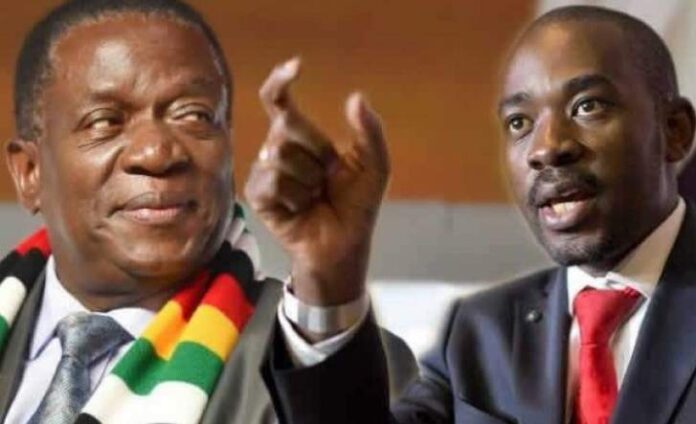The opposition Citizens Coalition for Change (CCC) says it is now pinning its hopes on the Southern African Development Community (Sadc) and the African Union (AU)’s intervention following its decision not to challenge President-elect Emmerson Mnangagwa’s victory at the courts.
The CCC rejected the election results after Mnangagwa was declared winner of the presidential election held on August 23 and 24.
Party deputy spokesperson Gift Ostallos Siziba told the NewsDay yesterday that the party had exhausted all domestic remedies to resolve the electoral dispute, hence the resolution to turn to Sadc.
“The crisis which Zimbabwe is facing is not a legal one,” Siziba said.
“We have a political crisis and we are very optimistic that Sadc and AU will help Zimbabwe resolve it. We have exhausted all the domestic remedies that could address the challenges,” said Siziba.
He said the CCC had engaged Zec on several occasions about various irregularities, but did not get any favourable response.
“We even wrote to Mnangagwa as the head of State, we wanted to engage him over various electoral irregularities, but we did not get any response.
“At the court we filed several cases, we have lost most of them, we petitioned the courts over various issues around the voters roll, distribution and printing of ballot papers, their printing and storage; we petitioned the courts against FAZ (Zanu PF affiliate Forever Associates of Zimbabwe), but we did not get any favourable response,” he said.
The CCC officials are currently on a diplomatic offensive seeking support of African leaders and Sadc to push for a fresh poll.
“Zimbabwe is currently battling a vicious cycle of electoral theft and disputes. What we want now is a permanent solution to resolve the crisis. We do not want a temporary solution because we are going to have a repeat of what we had previously. So the issues here are beyond the courts.
“As it is, we have no other solution except the intervention of Sadc and the AU. All the Chapter 12 institutions, the Human Right Commission, the National Peace and Reconciliation are aware of our issues.
“We even took our alternative Electoral Amendment Bill to Parliament and we also raised these issues in our pre-electoral pact document,” Siziba added.
Political analysts said the CCC was unlikely to get a favourable ruling at the courts if it had filed a case against Mnangagwa’s victory.
“It is now common cause that the role of the Judiciary in the electoral contestations has not been fair to Zanu PF opponents,” Zimbabwe Democracy Institute director Pedzisai Ruhanya said.
“In the pre-electoral period, apart from the case of the Bulawayo 12 MPs, all other cases have not been favourable to opponents. Going to the courts was going to give the opposition supporters who know that the elections were not run properly, false hope and it dampens their spirits.”
He added: “The struggle for Zimbabwe to be liberated was not addressed in the courts, neither was apartheid. Political problems require political solutions.”
Political analyst Eldred Masunungure said the lack of confidence in the Judiciary could have forced CCC not to petition against Mnangagwa’s victory.
“The Judiciary and most relevant institutions are part of Zanu PF, so it is a waste of resources and time to file a case against them. Any attempt to expose Zanu PF illegitimacy was actually granting them legitimacy,” opined Masunungure.
“So what CCC did here was to dismiss the whole government system including the Judiciary, by not filing a case. CCC has deepened the sense of illegitimacy and projected it to the local public and the international community.”
